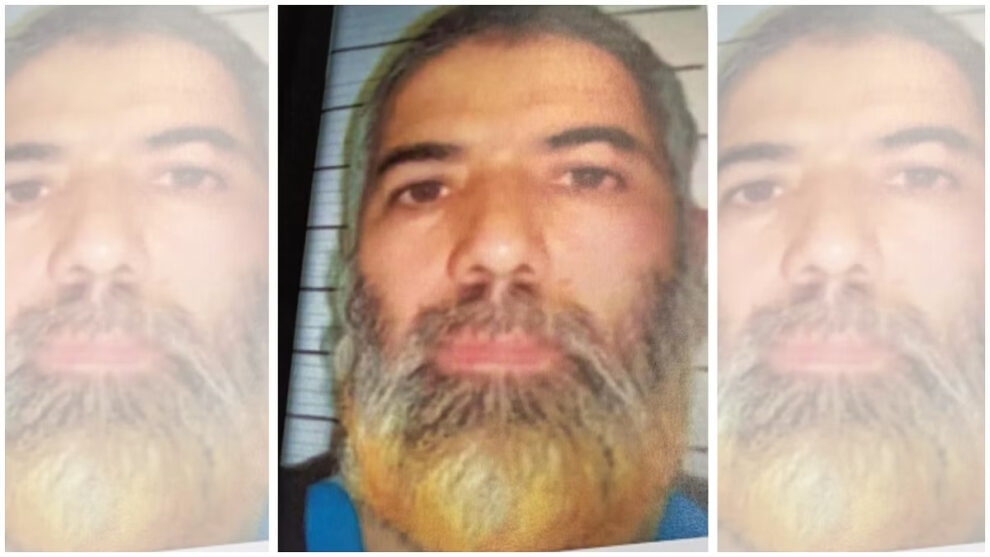New Delhi: Kashmir-born jihad commander Ejaz Ahmad Ahanger — alleged to have led an Islamic State cell responsible for a series of suicide attacks by Indian nationals in Kabul and Jalalabad — is believed to have been killed in southern Afghanistan, intelligence officials, as well as members of his family, have told ThePrint.
The one-time iron-foundry apprentice from Srinagar was designated a terrorist by the Ministry of Home Affairs in January.
Fahmida Shafi, Ahanger’s sister, told ThePrint that authorities have informed the family the terrorist leader “had slept off”. “The police summoned my older brother to give him the news a few days ago,” she said. “I do not know whether this is true or not, but I have been crying since then.”
Jammu and Kashmir Inspector General of Police Vijay Kumar declined comment.
The intelligence sources said Ahanger’s killing appeared linked to action being taken by the Taliban against Islamic State units operating in southern Afghanistan’s Kunar region. Indian intelligence officials are believed to have flagged Ahanger’s case in meetings held with the Taliban late last year.
Islamic State terrorists have killed dozens of Taliban members in recent months, in an accelerating intra-jihadist power struggle.
Afghan investigators had described Ahanger as the architect of a March 2020 suicide bombing by Kasargod-born Muhammad Muhsin, who killed a security guard and 24 worshippers at the Gurdwara Kart-e Parwan in Kabul.
Ahanger was also believed to have been responsible for a suicide attack involving Ijas Kallukettiya Purayil, a one-time dentist from Kerala’s Kasargod, at Jalalabad.
The terror commander is thought to be survived by his first wife, Rukhsana Ahanger, as well as two daughters, 1997-born Sabira Ahanger and 2001-born Tooba Ahanger.
Family sources said they had spoken to Ahanger last year, but were unaware of the whereabouts of his wife and children.
Ahanger had been incarcerated in Afghanistan together with his family, but fled prison after the country fell to the Taliban in 2021. Two media sources based in Islamabad said a home occupied by the family is currently locked.
A life in Jihad
Likely born around 1973, Ahanger dropped out of formal education in his teens, and then crossed the Line of Control (LoC) to train at a jihad camp run by the Harkat-ul-Mujahideen.
Following his arrest in 1992, Ahanger told Jammu and Kashmir Police interrogators that he was sent as part of a group of 40 recruits to a facility in Miranshah, in Pakistan’s Khyber-Pakhtunkhwa, where he received six-weeks’ training in the use of automatic explosives and weapons.
Founded in 1984 by Fazl-ul-Rehman Khalil — a student at the jihadist movement’s ideological powerhouse, the Jamia Uloom-ul-Islamia seminary in Karachi — the Harkat-ul-Mujahideen had close ties with Afghan jihad patriarch Jalaluddin Haqqani, as well as al-Qaeda’s Osama bin Laden.
Ahanger’s rise in the jihadist movement, though, came after his arrest in 1992. Inside prison, police sources say, he was mentored by Abdul Gani Dar, a cleric who had founded the Tehreek-ul-Mujahideen. The Tehreek-ul-Mujahideen was a relatively small group, but had close affiliations with the wider jihadist movement in Pakistan and Afghanistan.
Following his release from prison in 1995, Ahanger was married to Dar’s daughter, Rukhsana. The marriage, police sources say, took place at Dar’s family home in Russu, near Budgam. For a time, Ahanger resumed work as a blacksmith at his father’s foundry, but fled across the LoC with his wife in 1996.
Ahanger, an intelligence source said, worked at the Harkat-ul-Mujahideen’s office in Islamabad, editing its magazine Shahadat. To supplement his income, the source said, Ahanger also ran a small stationery store in Rawalpindi.
Early in 2009, Rukhsana visited her parents in Kashmir, travelling through Kathmandu. Local authorities, however, detected her presence and confiscated her passport for the next five years. Ahanger, meanwhile, got married again, to Saira Yusuf, the wife of a slain al-Qaeda jihadist. The couple were to have two sons, Abdullah Ibn-Aijaz and Abdul Rahman.
Turn to global terror
Late in 2010, Ahanger moved to Miranshah, to join the network of jihadist warlord Muhammad Illyas Kashmiri.
Illyas — a veteran of the jihad in Kashmir who then joined al-Qaeda — had become a magnet for Indian jihadists, including Indian Mujahideen commander Riyaz Shahbandri and key 26/11 perpetrator David Headley.
Following a crackdown on Illyas in 2014 by the Pakistan Army, Ahanger and his family fled across the border into Afghanistan’s Paktia province.
There, he joined a circle of jihadists around Hafiz Saeed Khan, a Pakistani jihadist who would go on to found the Islamic State in Afghanistan. The new organisation drew significant numbers of recruits from across the region, including Bangladeshis, Pakistanis and Maldivians.
In 2016, at least 28 Kerala residents — including children and pregnant women — arrived in Kunar to join the new mini-state.
Early in its existence, the Islamic State repeatedly clashed with the Taliban over revenues and territorial control. Saira Yusuf and Ahanger’s younger son are believed to have been kidnapped in one such clash. The two daughters and Rukhsana are believed to have rejoined Ahanger soon after.
Taliban chief Hibatullah Akhundzada signed a peace agreement with the Islamic State in 2017, with Hafiz Saeed Khan’s successor, Aslam Farooqi. The agreement was brokered by Jalaluddin Haqqani’s son, Sirajuddin Haqqani, an internationally designated terrorist who is now Afghanistan’s interior minister.
Following the agreement, Ahanger was given charge of a new Islamic State unit set up to stage attacks against India-linked targets. The Pakistani jihadist Amir Sultan Huzaifa — married to Ahanger’s daughter Sabira — was given charge of publishing the Islamic State’s magazine, Sawt al-Hind.
Ahanger also got married for a third time, intelligence officials say, to Russian national Leena Aisha, whose ethnic-Tajik husband had been killed in the fighting.
In April 2020, Ahanger moved again, this time to a safe-house in Kandahar. He was discovered there by Afghan intelligence, and held along with Aslam Farooqi and several other members of the cell. Afghan forces also detained 10 Indian women, the wives of volunteers serving with the Islamic State.
Aslam Farooqi was reported killed last year, in circumstances that remain unclear.
source: theprint









